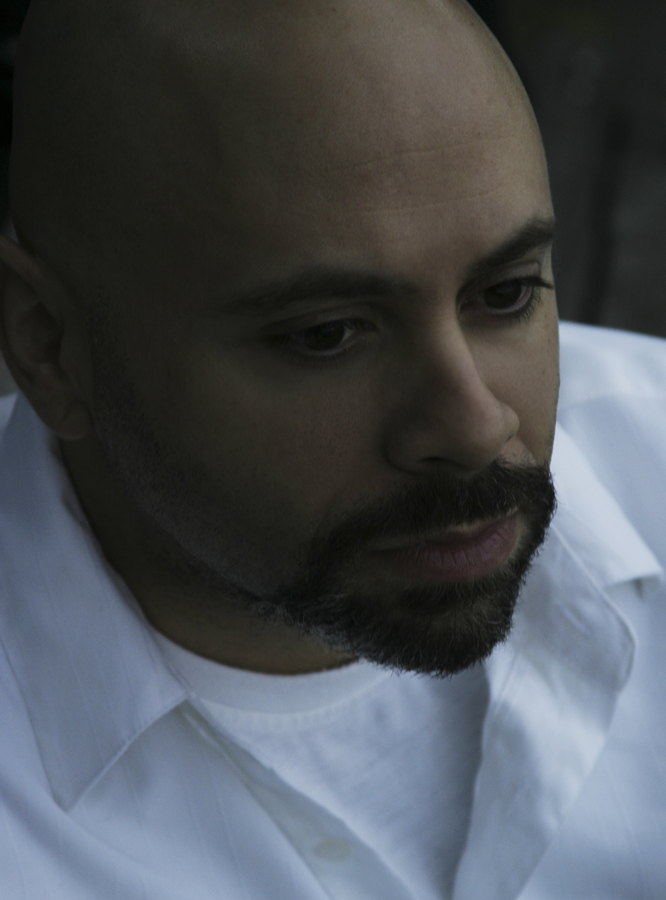
Good People, the new collection of short stories from Robert Lopez, features a host of memorable narrators and unpredictable situations. One character finds himself lost in a cloud of ambiguity somewhere in New Jersey; another offers an increasingly elaborate explanation as an increasingly unreliable justification for an act of violence. It’s a welcome return for Lopez, who has written some of the most haunting fiction I’ve read in the last decade. I interviewed him via email to learn more about the origins of Good People, his thoughts on New Jersey town names, and other relevant topics.
Many of the stories in Good People are hyper-focused first-person narratives, each with a distinct voice. When you’re writing a story such as this, how much do you know about the figure telling the story?
I never know much about the narrators beyond what they seem to be relaying through me as the writer. I don’t subscribe to that rather archaic and rigid school of thought that the writer has to know everything about their characters. I’m much more interested in mystery and ambiguity. I’m comfortable with what I don’t know.
“Welcome to Someplace Like Piscataway” features one of the most surreal takes on New Jersey I’ve encountered in a while. What led you to zero in on this particular New Jersey town for this particular story?
My sister lives in New Jersey, so I have a certain amount of familiarity with it. But, I don’t think I’ve every been to Piscataway specifically, which works for the story, since the narrator isn’t sure that’s where his sister lives. New Jersey has some great town names and Piscataway is on that list, for sure. So, the main reason is the way Piscataway sounds out loud.
Was the title location in “Guiding Eyes for the Blind Dog Training School” based on a real place?
Indeed, in Westchester, NY there is a Guiding Eyes for the Blind. They train dogs for all kinds of service there. I’ve driven past there on a number of occasions over the years.
A lot of the stories in the collection have distinctive titles: “Why We’re Trapped in a Failed System” and “I Want to Kiss Myself, Good God” both come to mind. At what point in the process of writing a story does the title come into play?
I have kept a running list of titles over the years. So, during the composition of a story, I’ll see if a title can find its way into a piece. “I Want to Kiss Myself, Good God” was one such title. The other you reference came from a line in the story, which is a good way to title a piece. Though, I don’t often find titles that way. Probably only 10 per cent of the time, if I had to guess.
Where in the process of putting the collection together did you decide that “Good People” would be the title story?
There seemed to be a running concern in many of the stories, this notion of goodness. It became clear pretty early on when assembling this book that Good People should be the title of the whole. No other title was ever under any real consideration, I don’t think.
There’s a sense of barely suppressed tension or violence in several of these stories; “The Sky Was Everywhere Like Water” is one that comes to mind. What is your preferred method for showing a narrator’s state of denial or repression in fiction?
For some reason, I’m thinking of Wallace Stevens, “to lay the brain upon the board/ and pick the acrid colors out.” Anger, repression, denial, are always interesting ingredients to make a soup out of. The narrators almost always are pretty naked when it comes to what they think and how they feel.
When I saw you at the LIC Reading Series earlier this month, you talked a little about the process of organizing this collection. What was the biggest difference between the manuscript as you originally envisioned it and the final version of the book?
The main difference is the book is shorter now. Also, I think maybe it’s a little lighter. There was a concern that the stories were too dark and one or two were added to lighten the whole of it. Although, I think those that were added are likewise dark. So, yeah. The book is shorter now and I think better because it is shorter.
What are you working on these days?
Not working on anything these days. Taking a break. There’s a new novel coming out next year with Dzanc Books called All Back Full. So, these days I’m pretty much on empty. And that’s fine.
Photo: Nola Lopez
Follow Vol. 1 Brooklyn on Twitter, Facebook, Google +, our Tumblr, and sign up for our mailing list.
